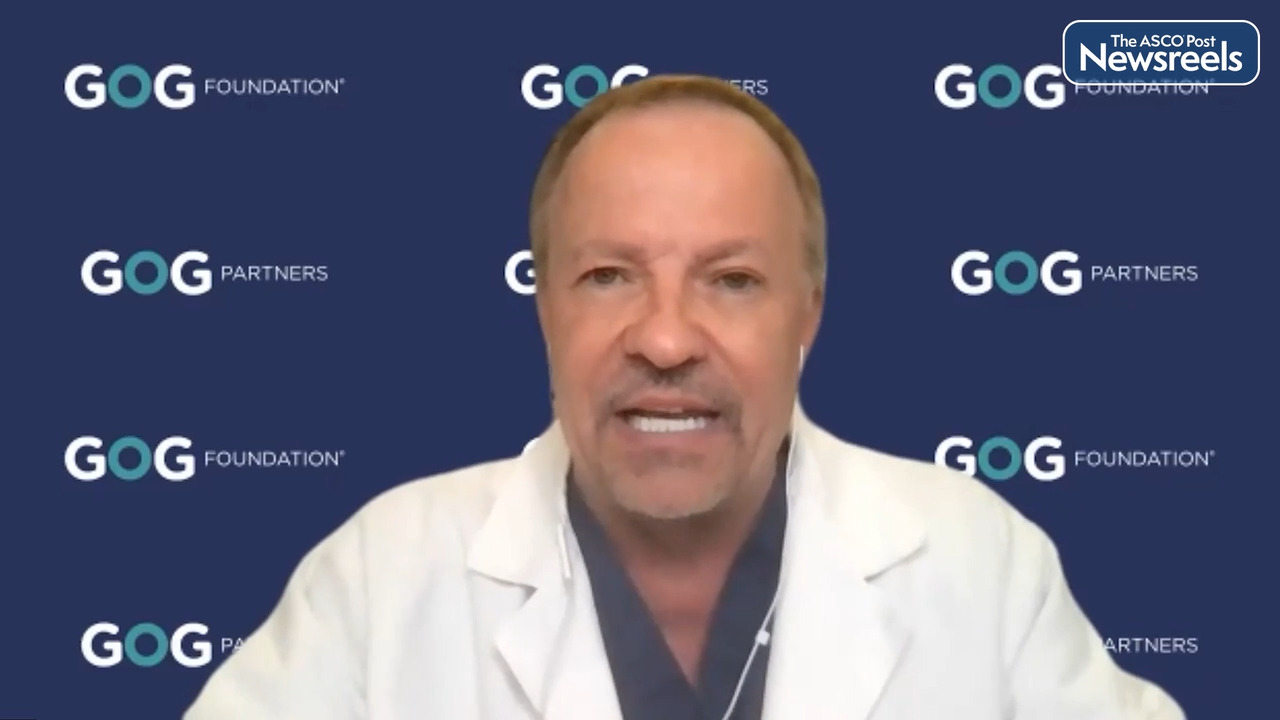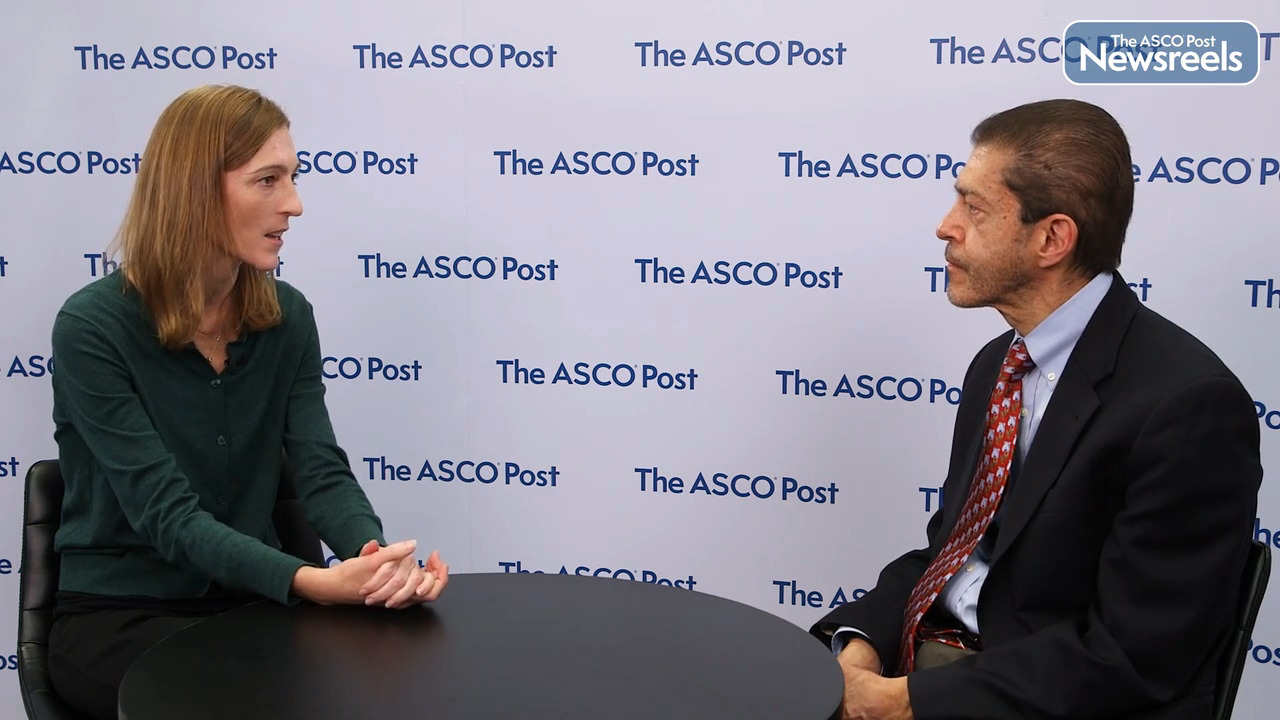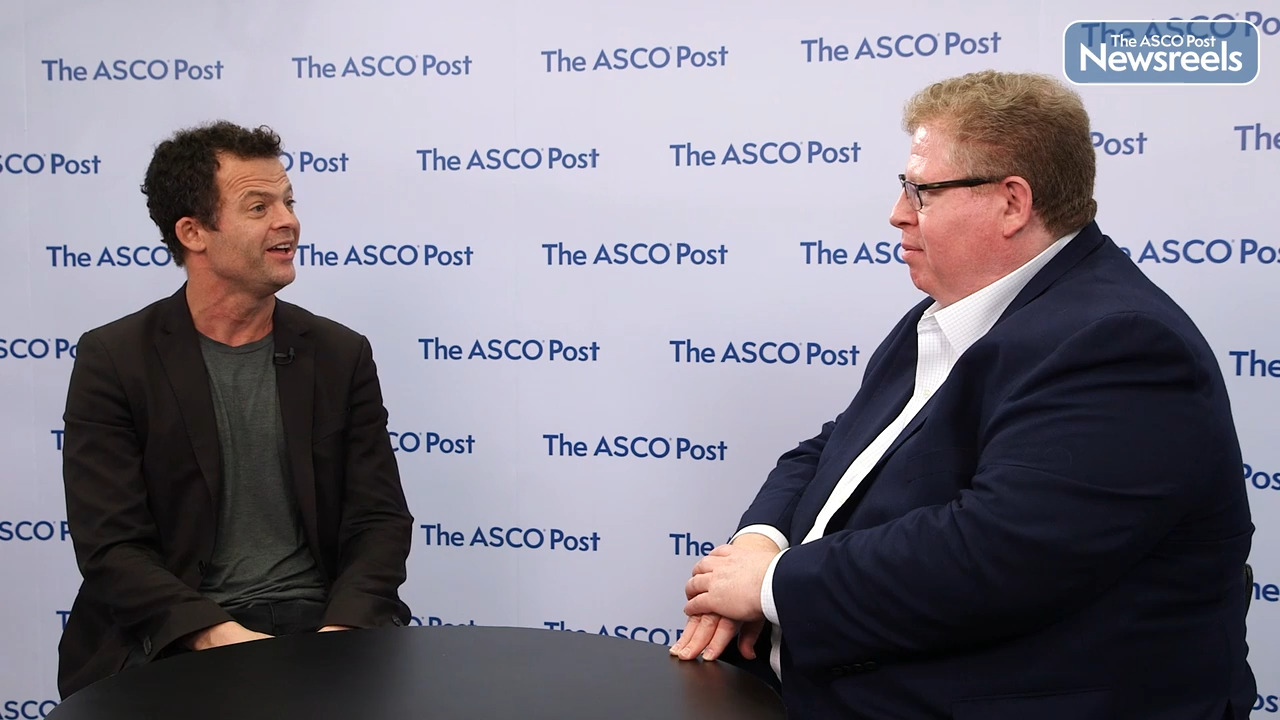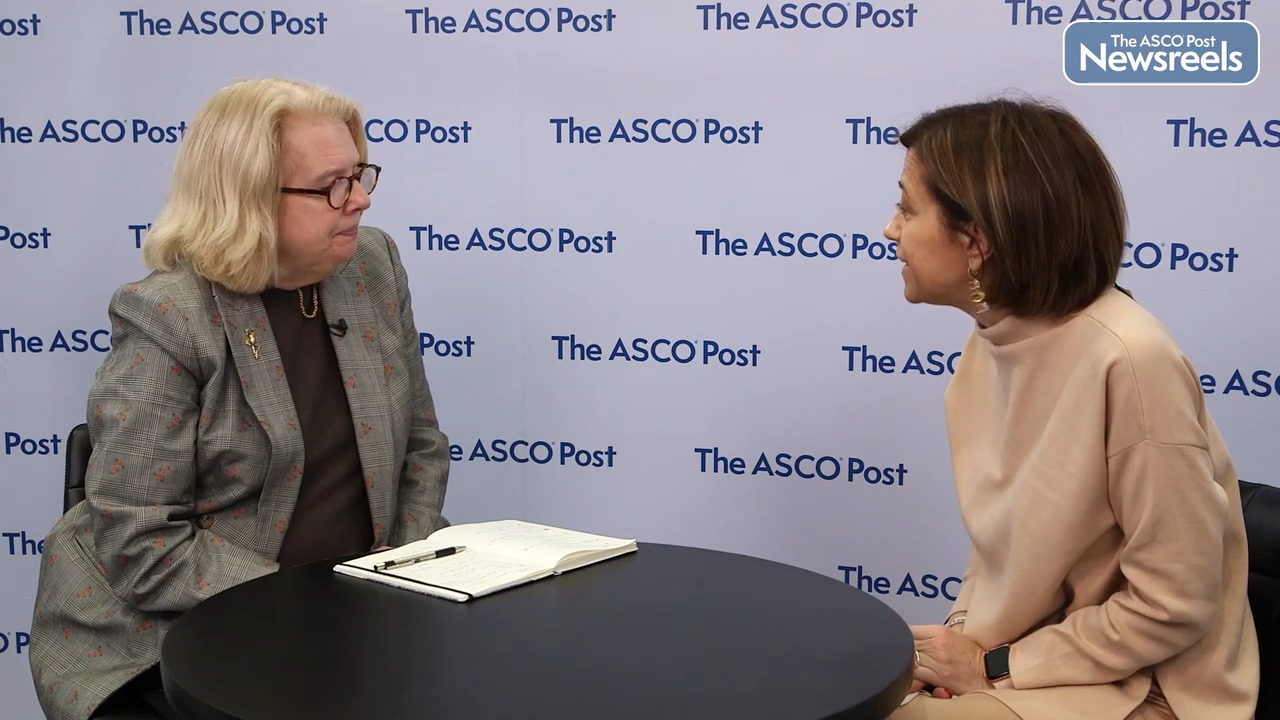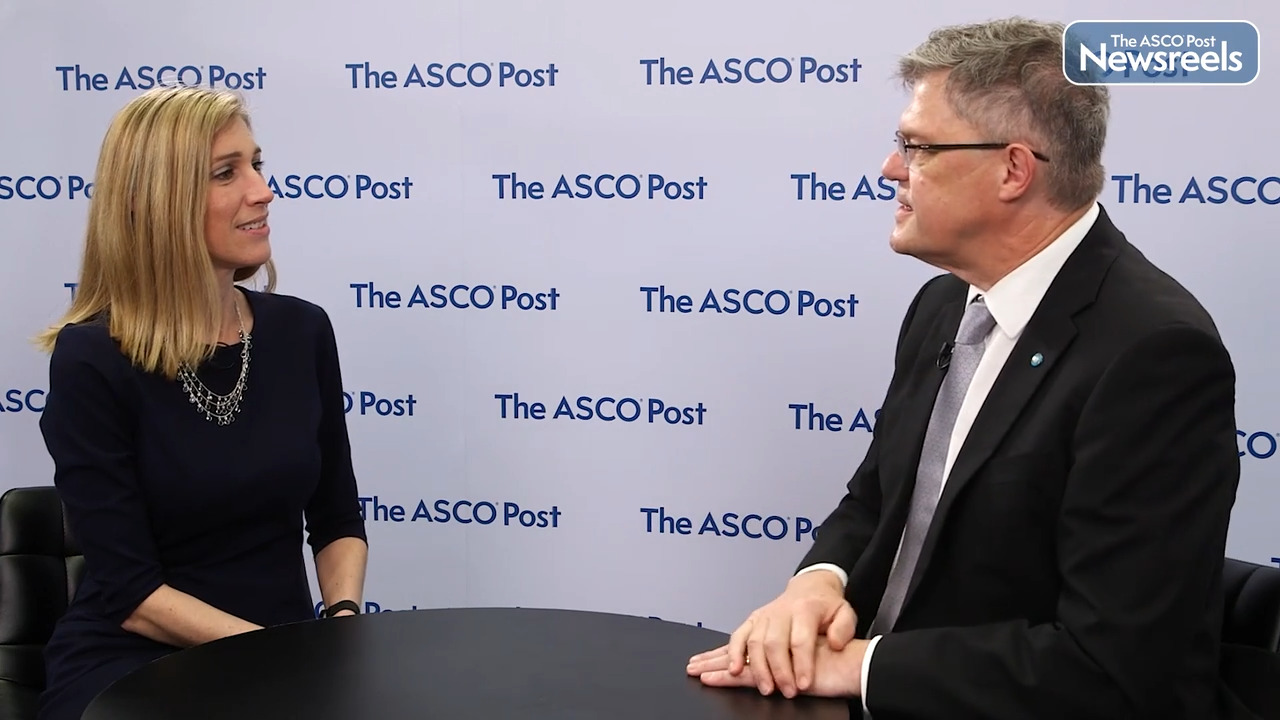Eunice S. Wang, MD, on AML: Long-Term Results With Crenolanib Plus Chemotherapy
2022 ASCO Annual Meeting
Eunice S. Wang, MD, of Roswell Park Comprehensive Cancer Center, discusses long-term phase II findings of a trial evaluating crenolanib plus chemotherapy in newly diagnosed adults with FLT3-mutant acute myeloid leukemia. The study showed a composite complete remission rate of 86%. With a median follow-up of 45 months, median overall survival has not been reached. A phase III trial is ongoing (Abstract 7007).
Transcript
Disclaimer: This video transcript has not been proofread or edited and may contain errors.
We designed a phase II clinical trial evaluating crenolanib added to standard 7+3 intensive chemotherapy for adults with newly diagnosed FLT3 AML. The purpose of this study was to examine the efficacy of adding this novel FLT3 tyrosine kinase inhibitor to standard intensive chemotherapy based on prior results of single agent crenolanib activity in heavily pretreated relapse and refractory FLT3 mutant adult patients. Crenolanib is a pan-FLT3 inhibitor with activity against both the active and inactive formations of FLT3 and has activity against both FLT3, ITD, and TKD mutations.
We designed this study to combine it with intensive chemotherapy, for which the standard of care is currently midostaurin plus 7+3 chemotherapy. A total of 44 patients were enrolled on this study, 29 younger than equal to 60 years of age, and 15 older than 60 years of age. 91% of patients had de novo disease, 75% with FLT3 ITD mutations and 18% with TKD mutations. Overall, patients were enrolled in standard intensive therapy with physicians choice of anthracycline, daunorubicin, or idarubicin plus infusional cytarabine for 7 days, followed by crenolanib started at 24 to 48 hours after chemotherapy and continued until 72 hours prior to next chemotherapy cycle. Patients were allowed to get consolidation with high-dose cytarabine or go on to transplantation, followed by 12 months of maintenance crenolanib following either chemo or transplant.
The overall remission rate in this trial was 86%. Younger patients younger than are equal to 60 years of age had a CR/CRI rate of 90%, and individual's greater than or equal to 60 years of age had an overall response rate of 80%. At 45 months of long-term follow up, the event-free survival for all 44 patients enrolled in this trial was 45 months. The median overall survival was not reached. In younger patients younger than 60 years of age, the median overall survival was not reached, with 71% of patients alive at 3 years after enrollment on this study. The overall cumulative rate of relapse in patients was 33%, and 15% in patients younger than 60. Of note, patients undergoing transplantation in this younger cohort had similar cumulative rate of relapse than patients getting chemotherapy alone.
In conclusion, we think that this combination regimen shows high efficacy, safety, and tolerability as compared to standard 7+3 plus midostaurin. A phase III trial of this combination approach is currently accruing using midostaurin 7+3 as its control arm. Results of this trial are eagerly awaited.
Related Videos
The ASCO Post Staff
Bradley J. Monk, MD, of the University of Arizona College of Medicine and Creighton University School of Medicine, discusses phase III findings from the ATHENA–MONO (GOG-3020/ENGOT-ov45) trial. It showed that rucaparib as first-line maintenance treatment, following first-line platinum-based chemotherapy, improved progression-free survival in patients with ovarian cancer, irrespective of homologous recombination deficiency status (Abstract LBA5500).
The ASCO Post Staff
Courtney D. DiNardo, MD, MSCE, of The University of Texas MD Anderson Cancer Center, and Jorge E. Cortes, MD, of Georgia Cancer Center at Augusta University, discuss phase III results from the ASCEMBL trial, which showed that after more than 2 years of follow-up, asciminib continued to yield superior efficacy and better safety and tolerability vs bosutinib in patients with chronic myeloid leukemia (CML) in chronic phase. These results continue to support the use of this kinase inhibitor as a new CML therapy, says Dr. Cortes, with the potential to transform the standard of care (Abstract 7004).
The ASCO Post Staff
Thomas Powles, MD, PhD, of Barts Health NHS Trust, Queen Mary University of London, and Jonathan E. Rosenberg, MD, of Memorial Sloan Kettering Cancer Center, discuss the 24-month findings from the phase III EV-301 trial, which suggest that enfortumab vedotin-ejfv continues to show a significant and consistent survival advantage over standard chemotherapy in patients with previously treated advanced urothelial carcinoma (Abstract 4516).
The ASCO Post Staff
Ursula A. Matulonis, MD, of Dana-Farber Cancer Institute, and Domenica Lorusso, MD, PhD, of Italy’s Gemelli University Hospital, discuss phase III data from the MITO23 trial on single-agent trabectedin vs clinician’s choice of chemotherapy in patients with recurrent ovarian, primary peritoneal, or fallopian tube cancers of BRCA-mutated or BRCAness phenotype. Although trabectedin has demonstrated antitumor activity in relapsed platinum-sensitive disease, it does not appear to improve survival outcomes when compared with standard chemotherapy in the BRCA-mutated population (Abstract LBA5504).
The ASCO Post Staff
Alicia K. Morgans, MD, MPH, of Dana-Farber Cancer Institute, and Ian D. Davis, PhD, MBBS, of Monash University and Eastern Health, discuss the latest findings from ANZUP Cancer Trials Group’s ENZAMET cooperative group trial of enzalutamide in patients with metastatic hormone-sensitive prostate cancer. The results corroborate the benefit of enzalutamide with improved overall survival, and involve some exploratory subgroup analyses (Abstract LBA5004).
